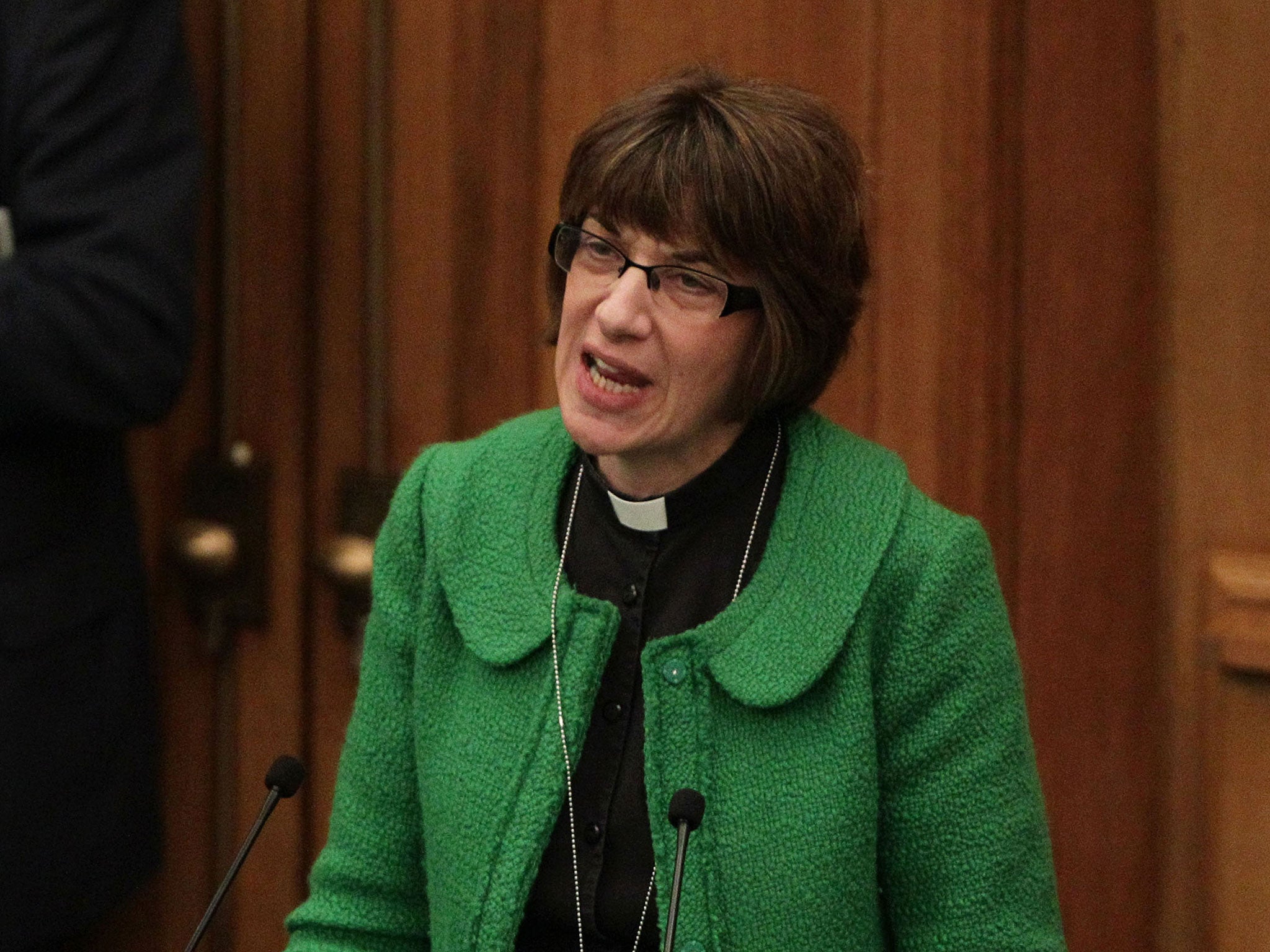Beyond gender: The concept of 'God' has always been androgynous
How can women progress in the Church if its spiritual leadership is considered male by nature?

The concept of “God” – despite the largely male-authored history of religious belief – is in its nature neither male nor female. Such mysterious movements as we can detect or believe in as an act of faith seem to have description in human gender. The Greeks, Romans and Vikings, it is true, were fond of gender stereotyping their deities – men for war, women for love, on the whole – but these too were expressions of cultural norms rather than any deeper truth. So it is when the God of the Christian Church is described routinely as “He”.
The call by Rachel Treweek, the newly-appointed Bishop of Gloucester, that God should be “degenderised” carries a good deal of weight, and should be supported. Instead of using either “He” or “She” to describe God, the Right Reverend reports that she prefers simply to use the word “God”. As she rightly points out: “If I am made in the image of God, then God is not to be seen as male. God is God.”
The scriptures may or may not support the ordination of women in ever more important posts in the Church of England, but there is nothing in the Bible, apart from some traditionally patriarchal language, that defines the Almighty as a male.
The naming of the divine and unknowable matters because it has more earthly implications: how can women progress in the Church if its spiritual leadership is considered male by nature? What a miracle it would be to see the world’s religions have women, gay, bisexual and transgender people in leadership positions.
Join our commenting forum
Join thought-provoking conversations, follow other Independent readers and see their replies
Comments